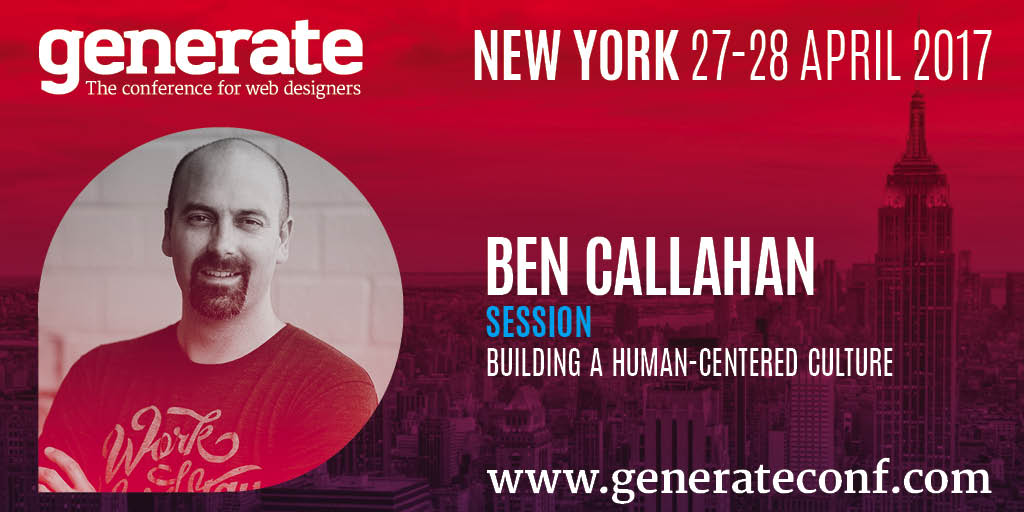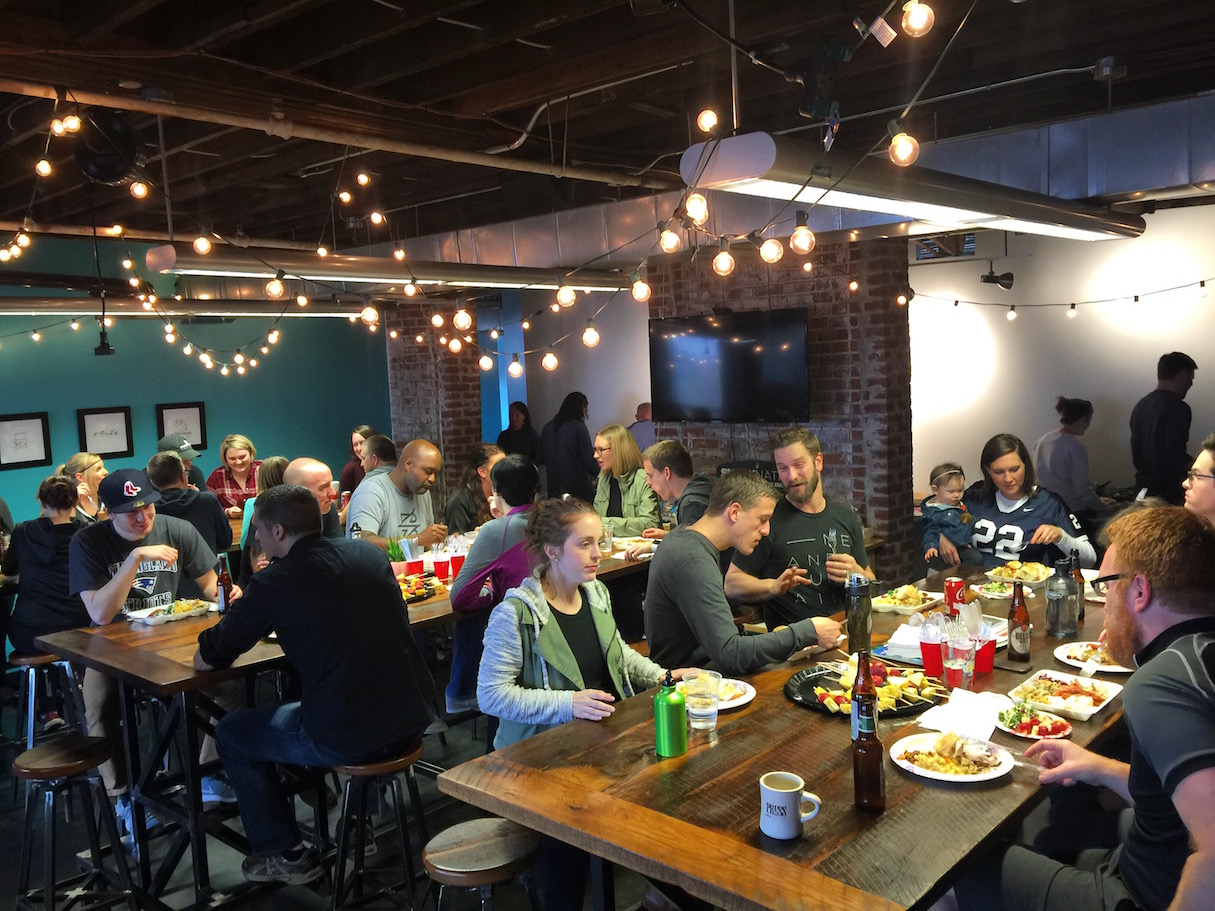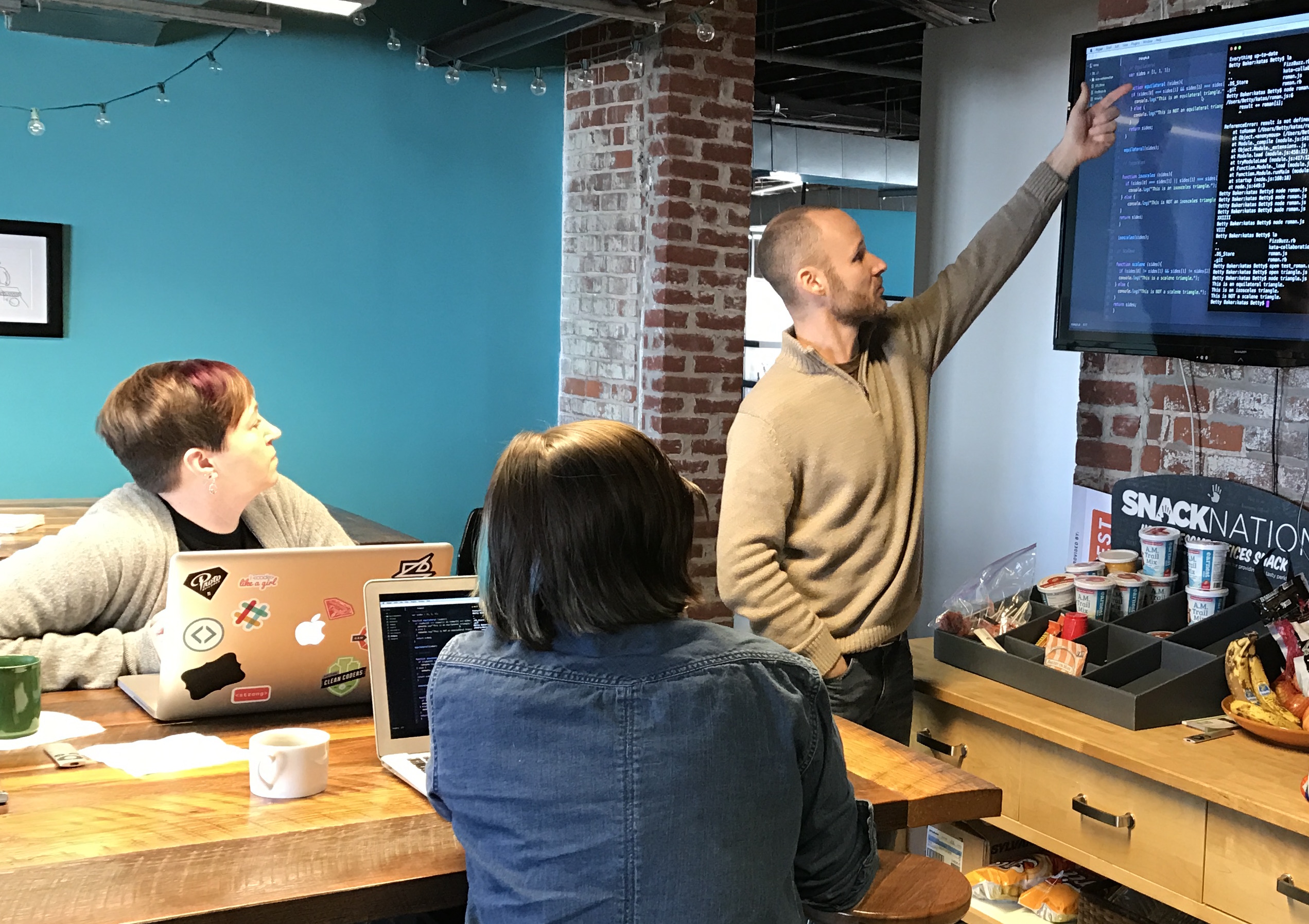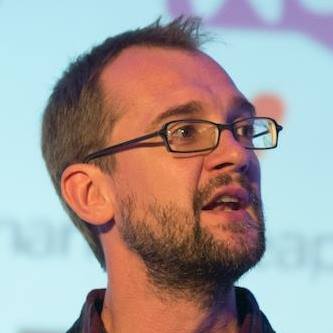Discover why disagreement is the key to great collaboration
Ben Callahan, president of web design studio Sparkbox, explains how to improve team collaboration.
Ben Callahan will give a talk about building a human-centred culture at Generate New York on 28 April, while Sparkbox developers Daniel Flynn and Rob Tarr will host a workshop about mastering front-end tooling on the day before the conference. If you buy a combined workshop and conference pass, you will save $125! But hurry, there are only limited places for the workshop.
How do you collaborate with your clients?
BC: Most of our customers have their own internal teams of UX and UI designers and developers. They may be small teams (one of our clients has one developer) or they may be massive (one client has well over 50 people on their UX team and hundreds of developers), but our goal is to work with them, not for them.
In other words, we invite their project managers, researchers, content strategists, designers and developers into communication channels with ours. We review their pull requests and have them review ours. We make decisions about the direction of the project together, combining their expertise about their industry with our expertise about the web.
In this way, we remove the need for a 'handoff'. We want our clients to see working with Sparkbox as an investment in their team and the only way that works is if we actually make their team better. So, that’s what we do. In short, we collaborate with our clients in exactly the same way we collaborate with each other.

Please give us an example of how one of your projects failed because of a people issue.
Ben Callahan: We had a project once where one man was our single communication channel with the customer's organisation. We did what we believed to be fantastic work for them, all being approved by the gentleman we viewed as our customer.
When we finished, he came to us and said that the rest of the organisation didn’t like what we built. 'It isn’t us' was the feedback we received. They paid all their invoices but our work was only in production for about one month. Then it was replaced with a WordPress theme that barely met any of the requirements we understood to be so crucial.
I consider this a failure on our part because (1) we didn’t push to get more iterative feedback all along, and (2) we never truly understood the stakeholder’s expectations of the project. Had we paused to ask a few more questions early on instead of assuming our way was the best way, we could have prevented this one from failing.
Daily design news, reviews, how-tos and more, as picked by the editors.
So, it wasn’t a technical failure – better code or the latest framework wouldn’t have fixed this one. It was a people and communication failure. Over the years, what I’ve seen is that we’ve never had a project fail for technical reasons. It’s always the people.
Is there one major mistake that every team makes? Something you encounter again and again when starting to work with a new team?
BC: I think a lot of teams mistake 'getting along' for 'collaboration'. In all honesty, if you’re always in agreement with your collaborators, you’re not doing it right. The whole benefit of working with others is to push you to consider ideas you wouldn’t come to on your own. The most important ingredient to collaboration is diversity. It follows that the lack of diversity in our industry is the single greatest threat to our ability to collaborate in a meaningful way.

Please give us three tips teams can implement to improve collaboration.
BC: Number one: Start putting people with different expertise on the same problem, together. This increases empathy and skill for both individuals involved.
Two: Expose disagreement, don’t hide it. Many organisations are afraid of disagreement. Find a healthy way to share differing viewpoints – demonstrating that it’s OK to have a dissenting view is critical to improving collaboration. Which leads to...
Three: Find ways to encourage participation from those who are naturally less outspoken. There are some people on your team who are just not going to speak up naturally. It’s your job to draw them into the conversation. One way to do that is to ask them what they’re thinking. Another is to speak less and listen more.

What’s the culture like at Sparkbox?
BC: I asked the team. This is how they responded..
Marshall Norman: Humble but confident. Smart but not snide.
Philip Zastrow: When I think Sparkbox culture I think humble collaboration, knowledge sharing, and genuine caring… and piles of food.
Jody Thornburg: Whenever I describe Sparkbox to people, I say that our leadership always says ‘the grass is greener where you water it,’ and our team is watered well. It’s a culture that focuses so intently on its people, which in turn, causes people to want to strive hard and provide really great work.
What can people expect to take away from your talk at Generate New York?
BC: My goal is to help folks see that no matter what role they play, they can have an impact on how their team works together. I hope to give attendees some very tangible practices they can put in place when they return to work that will help them and their teammates get better at their jobs.
Generate New York on 28 April features 14 talks by the likes of Sara Soueidan, Mina Markham, Abby Covert and Jennifer Brook. They will cover design systems, user research, information architecture, conversational interfaces, and much more. In his closing keynote Steve Fisher will expand on Ben's statement that disagreement and indeed conflict are the key to great UX.
If you can't make it to the NYC conference, there's also one in San Francisco on 9 June. Tickets are on sale now.

Oliver is an independent editor, content consultant and founder of Pixel Pioneers. Formerly the editor of net magazine, he has been involved with the web design and development industry for more than a decade and helps businesses across the world create content that connects with their customers. He is passionate about content, user experience, accessibility and designing for social good.

